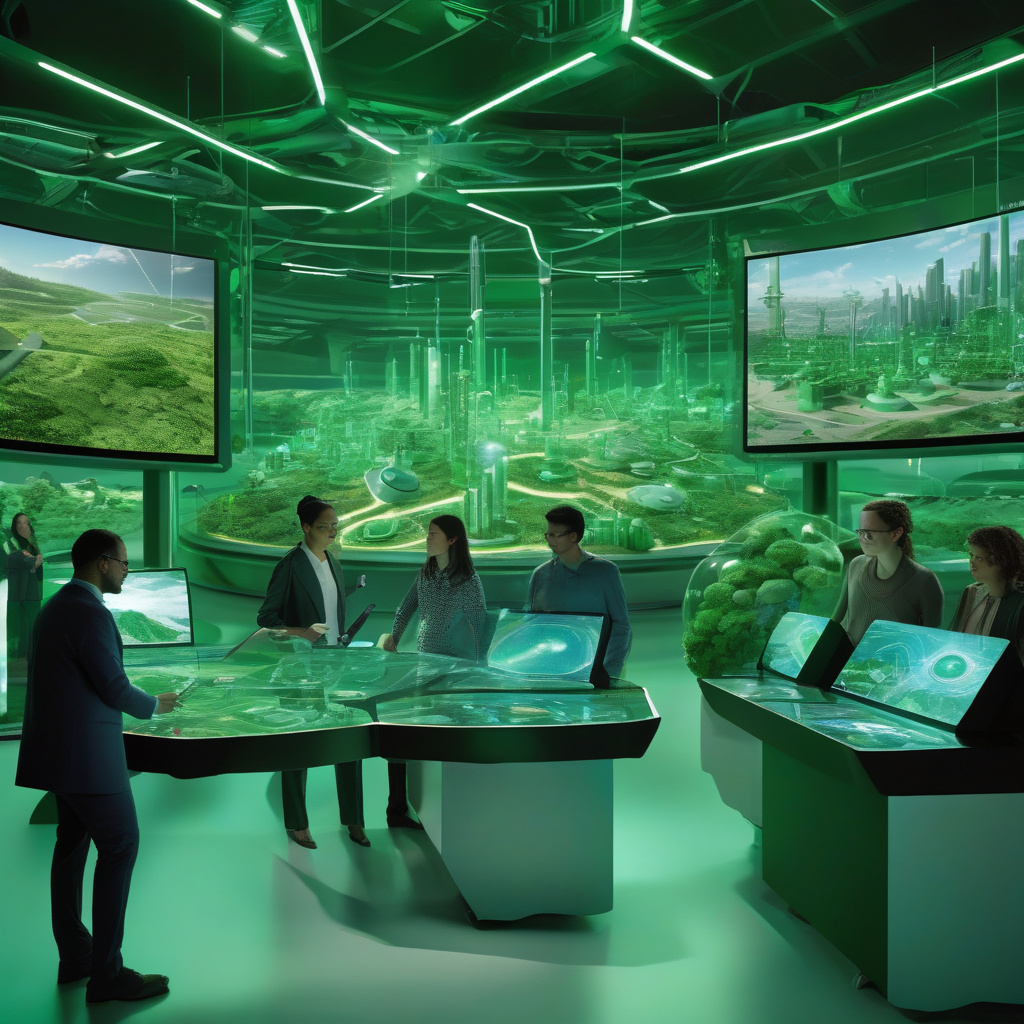Green AI and the Battle Between Progress and Sustainability
Artificial Intelligence (AI) has undoubtedly revolutionized industries, propelling innovation and driving progress at an unprecedented pace. However, as AI continues to advance, it is also emerging as a significant driver of environmental strain, raising pressing questions about the compatibility of progress and sustainability. The concept of “Green AI” has thus come to the forefront, representing the intersection between technological advancement and ecological responsibility.
One of the primary concerns surrounding AI is its substantial energy consumption. The training of AI models often requires vast amounts of computational power, leading to high electricity usage and carbon emissions. A study by the University of Massachusetts Amherst found that training a single AI model can produce as much carbon emissions as five cars in their lifetimes. This staggering environmental impact has sparked calls for the development of more energy-efficient AI algorithms and infrastructure.
Despite these challenges, AI also holds immense potential as a force for sustainable solutions. By harnessing the power of AI, industries can optimize processes, reduce waste, and make more informed decisions that benefit both the bottom line and the planet. For example, AI algorithms can analyze vast datasets to identify patterns and inefficiencies in energy usage, enabling companies to implement targeted strategies for conservation and sustainability.
Moreover, AI-driven technologies like smart grids and predictive maintenance systems have the potential to revolutionize the energy sector, facilitating the integration of renewable energy sources and enhancing overall efficiency. In agriculture, AI-powered tools can help farmers optimize crop yields, reduce water usage, and minimize the environmental impact of traditional farming practices.
The concept of Green AI extends beyond individual applications to encompass a broader shift towards sustainable innovation. Companies are increasingly recognizing the importance of integrating environmental considerations into their AI strategies, not only to mitigate risks but also to capitalize on the growing demand for eco-friendly solutions. By prioritizing sustainability in AI development, organizations can align technological progress with long-term environmental stewardship.
Several initiatives are already underway to promote the development of Green AI. For instance, the Climate Change AI initiative brings together researchers, policymakers, and industry leaders to explore how AI can contribute to climate action. Similarly, the Responsible AI for Social Empowerment (RAISE) initiative in India aims to leverage AI technologies for social good, including environmental conservation and sustainability efforts.
As the debate around Green AI continues to evolve, it is clear that the battle between progress and sustainability is far from over. While AI has the potential to drive significant environmental impact, it also offers promising solutions to some of the most pressing challenges facing our planet. By striking a balance between innovation and ecological responsibility, we can harness the full potential of AI to create a more sustainable future for all.
In conclusion, the emergence of Green AI underscores the need to rethink our approach to technological development and embrace a more holistic perspective that considers both progress and sustainability. By leveraging the power of AI for environmental good, we can pave the way for a greener, more sustainable future.
Green AI, Sustainability, Artificial Intelligence, Innovation, Environmental Responsibility
